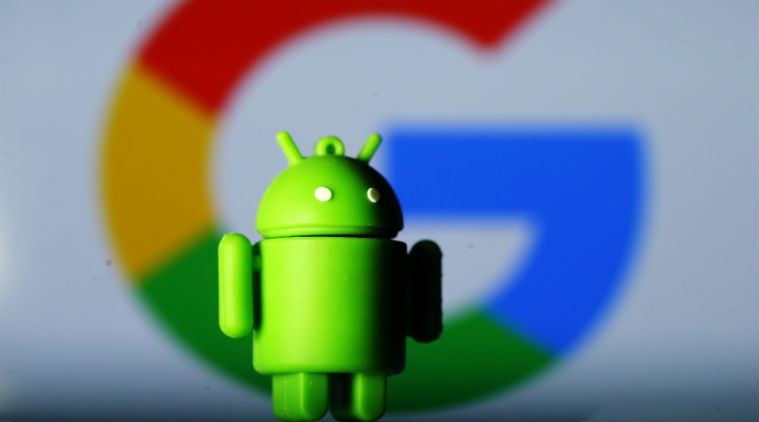Google’s $5.1 billion fine by the European Union on Android: Here’s why it happened
The European Union has fined Google an amount of nearly $5.1 billion in the Android antitrust case. Three reason why EU held Google to be guilty.
 The European Union has fined Google an amount of nearly $5.1 billion in the Android antitrust case. Three reason why EU held Google to be guilty.
The European Union has fined Google an amount of nearly $5.1 billion in the Android antitrust case. Three reason why EU held Google to be guilty.
The European Union’s Competition Commission has imposed a fine of nearly 4.3 billion euros ($5.1 billion) on Google in the Android antitrust case. The commission ruled that Google forced manufacturers to install its search engine and Chrome browser on Android operating system, and thus cemented its already dominant position in the market.
Google said it plans to appeal the decision. Google CEO Sundar Pichai wrote a blog post explaining why Android offers more choices to consumers. “We are concerned that today’s decision will upset the careful balance that we have struck with Android, and that it sends a troubling signal in favor of proprietary systems over open platforms…. Today’s decision rejects the business model that supports Android, which has created more choice for everyone, not less. We intend to appeal,” Pichai wrote.
Google is accused of stifling competition and denying consumers in the region choice around search engines with the way it operated its Android deals. We explain the three reason why EU held Google to be guilty:
Illegal tying of Google’s search and browser apps
The commission notes that Google’s licensing conditions for the Play Store “make it impossible for manufacturers to pre-install some apps but not others.” According to the Commission, Google engaged in two instances of illegal tying: one was with the Google Search app and second was with the Chrome browser.
Also Read: Google fined record $5.1 billion by EU in Android anti-trust investigation
The tying of Google Search as the default option on Android was found to be illegal as of 2011. According to the commission, the pre-installation of Google Search and Chrome have major consequences in driving traffic to Google, since both are important entry points for search queries on mobiles.
The Commission notes, “Pre-installation can create a status quo bias. Users who find search and browser apps pre-installed on their devices are likely to stick to these apps.” The Commission noted that in Google’s case its search engine was used more on Android where it was pre-installed, rather than on Windows Mobile devices, where users must download it.
 EU has also taken objection with Google stopping device manufacturers from launching forked versions of Android, which were not approved the the company.
EU has also taken objection with Google stopping device manufacturers from launching forked versions of Android, which were not approved the the company.
The Commission did not agree with Google’s argument that in order to monetise Android it had to include Google Search app and Chrome browser in the operating system.
Illegal payments to OEMs, mobile network operators for exclusive pre-installation of Google Search
The Commission also noted that Google “paid some of the largest device manufacturers as well as mobile network operators on condition that they exclusively pre-installed Google Search across their entire portfolio of Android devices.” EU notes that this was illegal and “harmed competition” in the region. The Commission found Google’s conduct to be illegal between 2011 and 2014. Google stopped the practice of paying manufacturers back in 2014.
Illegal obstruction of development and distribution of competing forked Android versions
EU has also taken objection with Google stopping device manufacturers from launching forked versions of Android, which were not approved the the company.
“In order to be able to pre-install on their devices Google’s proprietary apps, including the Play Store and Google Search, manufacturers had to commit not to develop or sell even a single device running on an Android fork,” notes the Commission’s filing order.
It says this conduct was abusive as of 2011, and helped Google and its Play Store become the dominant one in the market for app stores. The Commission has given an example of how Google’s conduct prevented manufacturers from developing and selling devices based on Amazon’s Android fork, which was called ‘Fire OS’.
According to the Commission, this had a direct impact on users who were denied “access to further innovation and smart mobile devices based on alternative versions of the Android operating system.”
So what is the action that Google will face?
Google has been given 90 days from the decision to stop all these illegal activities. The minimal expectation is that Google has “to stop and to not re-engage in any of the three types of practices.”
However, the “decision does not prevent Google from putting in place a reasonable, fair and objective system to ensure the correct functioning of Android devices using Google proprietary apps and services.” Still Google cannot create a system where device manufacturers cannot product devices based on Android forks.
The Commission’s statement notes, “The Commission will monitor Google’s compliance closely and Google is under an obligation to keep the Commission informed of how it will comply with its obligations.”
If the search giant fails to comply, then can face fine of “up to 5% of the average daily worldwide turnover of Alphabet, which Google’s parent company.” More importantly Google is also liable to face civil actions for damages in courts from people or businesses who think they were negatively impacted by the anti-competitive behaviour.







